VACEOs to Partner with Virginia Chamber of Commerce
(READ Richmond Times-Dispatch Coverage >)
The Virginia Council of CEOs and the Virginia Chamber of Commerce announced a strategic partnership today. The agreement grants active VACEOs members dual membership in the Council and the Virginia Chamber of Commerce, strengthening the Council’s value to its membership and facilitating its ability to expand regionally. The partnership is expected to positively impact Virginia business.
The Virginia Chamber of Commerce is the largest business association in Virginia, with more than 25,000 member companies. The Virginia Council of CEOs is a non-profit association founded in 2000 that provides crucial benefits to its members through programs and sponsors –most notably through its CEO-to-CEO Roundtable peer support groups, which help members take their business to the next level.
“The Virginia Council of CEOs gives business leaders in Central Virginia an informal board of directors composed of peers and dedicated to their success,” said Scot McRoberts, Executive Director of the Council. “This partnership with the Virginia Chamber will provide tremendous value for our current members and help us begin to form new CEO Roundtables in other parts of the Commonwealth.”
McRoberts reports the Council is currently setting up CEO Roundtable groups in Charlottesville and plans to do the same in other parts of the state in the near future.
“This partnership is very gratifying, as it constitutes an exciting key milestone in the history of the Council. The result should be a significant economic impact for Virginia.” – Chuck McCabe, Co-Founder VACEOs and CEO of Peoples Tax.
Going forward, the Virginia Council of CEOs and the Virginia Chamber will work closely together on future events and initiatives, including this year’s update to the Chamber’s long-term economic plan, Blueprint Virginia 2025.
“This partnership is very gratifying, as it constitutes an exciting key milestone in the history of the Council. The result should be a significant economic impact for Virginia,” said Chuck McCabe, Co-Founder VACEOs and CEO of Peoples Tax.
“We look forward to working with the Virginia Council of CEOs in this new partnership,” said Barry DuVal, President and CEO of the Virginia Chamber of Commerce. “The strategic plan adopted by our board last year called for expanding collaboration efforts with other business associations, and the fine work of the Virginia Council of CEOs in providing a platform for peer-to-peer CEO mentoring will complement the Chamber’s existing services. Our strength as the voice of Virginia business relies on engaging a broad cross-section of Virginia business leaders, and we welcome these CEOs as new members of the Virginia Chamber.”
“Our association with the Virginia Chamber of Commerce brings about a new set of opportunities for the Council,” adds Neal Lappe, current VACEOs Chair and Founder & CEO of WebStrategies, Inc.
“Over the years, our CEO members and Council staff have developed an organization unlike any other in the state of Virginia. Working with the Virginia Chamber strengthens the Council’s ability to bring our unique value to CEOs throughout the state, and further enables us to fulfill our mission of connecting CEOs for learning and growth. We are excited and optimistic about what this partnership will bring.”
About the Virginia Council of CEOs
The Virginia Council of CEOs is a non-profit association that serves the CEOs of small and mid-sized businesses in Virginia. The Council was founded in 2000 to connect CEOs so that they can learn and grow together. With 200 members in Central Virginia at this time, the Council is forming new CEO Roundtables in other parts of the state in 2017. Learn more at http://www.vaceos.org/.
About the Virginia Chamber of Commerce
The Virginia Chamber of Commerce is the largest business advocacy organization in the Commonwealth, with more than 25,000 members. The Chamber is the leading non-partisan business advocacy organization that works in the legislative, regulatory, civic and judicial arenas at the state and federal level to be a force for long-term economic growth in the Commonwealth. Learn more at www.vachamber.com.
Co-Founder of CarLotz Shares Success Formula
When you look back at your first entrepreneurial endeavor, do you recall a sweet image of success – or an embarrassing moment of failure? For Aaron Montgomery, Co-Founder and COO of CarLotz, it’s the latter.
Speaking at a recent VACEOs membership luncheon, the charismatic executive shared what he described as one of the biggest blunders of his life, which happened during his second year at Harvard Business School. It took place during the decade when many entrepreneurs subscribed to the business philosophy of “Get big fast” and/or “Figure it out as you go,” Montgomery told the group. It’s a great story involving t-shirts, some of which he probably still has!
The good news is that Montgomery’s mistake paved the way to a better, more accountable, and leaner way of doing business. Today, he and the CarLotz ownership team adhere to a simple formula:

1. Create a hypothesis.
2. Speak to customers (get data).
3. Take that feedback back to the lab.
4. Refine the idea or product.
5. Repeat.
It sounds simple, but it’s a formula the car consignment company has followed many times to successfully streamline marketing messages, refine various internal and external processes, and hire the right candidates.
Speaking about the company’s reliance on data and information, Montgomery said, “All of our feedback came from actual interactions, and not just theorizing what we were going to do and saying to ourselves, ‘Here are all the studies on this, so here’s what we’re going to do.’ We got actual customer feedback. We asked actual people.”
“You can make a change that’s small and test it for performance results, but you’ve got to be ready to embrace that sometimes small changes can lead to big ones and let go of the idea of throwing it all in and seeing what happens.” – Aaron Montgomery, Co-Founder and COO of CarLotz.
Montgomery also stressed the importance of what companies do with their data. “You can make a change that’s small and test it for performance results, but you’ve got to be ready to embrace that sometimes small changes can lead to big ones and let go of the idea of throwing it all in and seeing what happens.”
The philosophy is working – and well. CarLotz, which was founded in 2011, just opened its fifth retail location not long after making it onto The RVA 25 – Richmond BizSense’s list of the area’s fastest-growing companies. (To learn more read: “CarLotz Poised to Grow.”)
 This learning experience was taken from the VACEOs Quarterly Luncheon presentation “Test and Refine: Building a Business in the Face of Uncertainty” with Aaron Montgomery (Thursday, November 17, 2016).
This learning experience was taken from the VACEOs Quarterly Luncheon presentation “Test and Refine: Building a Business in the Face of Uncertainty” with Aaron Montgomery (Thursday, November 17, 2016).
VACEOs members have access to national thought leaders with unique voices not often heard in this market on a regular basis. Check out other member benefits.
Cyber Security 101: 7 Facts and Tips to Remember
October has passed, so we must say farewell to Cyber Security month, but not before we leave you with seven important things to remember, thanks to Chris Moschella, Manager of Risk Advisory Services at Keiter, who was on hand at a recent Knowledge Network lunch. Listed below are just a few of the things we learned.
CYBER SECURITY 101: 7 FACTS, FIGURES AND TIPS TO REMEMBER
- Attacks can cost hundreds of dollars per data record to recover, but it’s the damage to your reputation and loss of business (and sometimes employees) that costs SMBs the most.
- One of the best investments you can make as an SMB owner is in security awareness training.
- 91 percent of breaches start through email.
- It’s vital to know where your “cyber doors and windows” are – and to keep them closed.
- Mobile devices, laptops and phones = examples of cyber windows.
- Know exactly where your sensitive data resides – and limit who has access to it.
- When it comes to security, know where your data/internet service provider’s responsibility ends and yours begins.
Members Only: Please send me Chris Moschella’s presentation on cyber security risk prevention.
HEARD AT THE DEMYSTIFYING CYBER SECURITY KNOWLEDGE NETWORK LUNCH
“While I admit that the topic of cyber security did not elicit feelings of excitement, it’s exactly the kind of information that responsible CEOs need to have in this world that’s changing at lightning speed. I now feel prepared and have the much-needed information to ensure the right checks and balances, appropriate training and policy needed to protect our business investment.” – Maria Page Candler, President, James River Ground Management
“If something is not important to you, there is almost a zero percent chance it will be important to your staff.” – Chris Moschella, Keiter, on setting a serious corporate tone when it comes to cyber security and threat prevention.
Related articles: “Making a Claim for Cyber Security Insurance.”
A Moment of Gratitude
The Virginia Council of CEOs is a business organization unlike any other. Simply stated, it’s a fellowship, and each day we take risks, and dare to follow our dreams. Sometimes we struggle with living in the present.
“As business owners, we’re good at identifying and solving problems … it’s a skill set. However, day after day, that skill can also distract us from being present in the moment and acknowledging the blessings that surround us,” expresses one Council member. “By being more intentional about creating moments of gratitude into my daily routine, I’ve seen a major shift in how I process stressful or worrisome times both personally and professionally. And that’s something to be grateful for.”
How often do you interrupt your day for a moment of gratitude?
“I tell myself three things I’m grateful for every morning on my commute,” writes another Council member. “They can be ‘big’ like health/family/marriage or ‘small’ like car seat heaters or commercial free radio. Good energy out brings good energy back!” Note: Shawn Achor talked about how gratitude increases happiness at our 2015 CEO Retreat. See some of Achor’s tips here.
Today, we pause and say THANK YOU, VACEOs members, for making our lives, and the world around us, better.
What are you thankful for? VACEOs members share their thoughts…
“Health – this can so often be overlooked. The other day I saw a man with no legs begging for money on the corner. He looked like a veteran. It occurred to me that my ‘problems’ are mostly inconveniences.”
“Life and all that it entails; the good, bad, messy and neat we see daily.”
“My very close RT12 and VACEOs friends.”
“Family – nothing better than my wife and 3 kids.”
“Entrepreneurship and America – I love living in a country where the small business culture is encouraged and revered. I’m doing what I was put on this earth to do and I’m grateful for great relationships through employees, clients and vendor partners.”
“Friends and family – positive business environment – trust, generosity, and faith from others”
“Grateful for amazing kids that have been raised to be kind, open, accepting, contributing members of society and a wonderful husband partner to helping me make that happen and sticking with me in the messiness of life.”
“Grateful for the opportunity to provide leadership and support to a team of employees that work hard every day and to give them resources that make their lives more impactful.”
“I am grateful for the wonderful care my mother receives in the Memory Unit at Westminster Canterbury.”
“Good health, great family…most days prosperous business.”
Making the Claim for Cyber Security Liability Insurance
It’s no secret that cyber attacks are on the rise, and, like it or not, an attack could have devastating effects on your business. October is Cyber Security Awareness Month, so we wanted to ask: If all systems fail – if your security protocols don’t work and your worst day comes – do you have the right cyber security liability insurance in place to save your business?
DATA BREACH. WHAT’S THE FALLOUT?
Not all data is created equal when it comes to cyber security risk. Two forms are the most prized by hackers: PII, or Personally Identifiable Information – which includes things like customer names, social security numbers, banking or payment information, user IDs and passwords – and PHI, Protected Health Information – which includes information concerning patient health status, provision of health care and payment for health care.
If an employee opens an email and exposes an entire company to a phishing scam – or if a server on the cloud gets hacked and exposes millions of customer records to cyber criminals – it hurts everyone involved. For business owners, it can be especially painful.
According to one study, data breaches cost companies an average of $221 per compromised record – of which $145 is attributed to indirect costs, which include abnormal turnover or churn among customers – and $76 represents direct costs incurred to resolve the breach, such as investments in upgraded technology and legal fees.*
WHAT’S YOUR RESPONSIBILITY?
Winters-Oliver Insurance is a 71-year-old family business. Ben Winters, CIC, joined the company in 2010, and since then, he’s seen an increase in the need for cyber security liability coverage.
“Relative to the insurance industry, cyber security coverage is a fairly new product,” says Winters. “It came out in the late 90s, and we’ve seen maturation in the last 10 years in terms of coverage and response to the new information-sharing and technology-driven world we live in.”
“Many small business owners I speak to about cyber security insurance think, ‘I would never land on anyone’s radar.’ But most businesses, regardless of industry, are now regulated as far as how they protect their data, whether they know it or not.”
Winters says that if a business is found negligent in terms of causing a breach or allowing information to become compromised and fall into unauthorized hands, it is then required to respond. Federal – and sometimes state – guidelines apply.
In some cases, federal guidelines require the business to report the breach, notify (via U.S. mail) all those affected and provide credit reporting to those individuals for at least a year at the business’ expense. Additionally, federal guidelines require the business to create a website dedicated to handling notifications about the breach. The business must also set up a call center to further respond to inquiries that might result from notification.
“You can see how this can get pretty expensive pretty quickly,” says Winters. “The right cyber security liability policy will cover these kind of expenses.”
As expensive as it is to respond to cyber attacks, 2016 research reports that the biggest financial consequence to organizations that experience a data breach is lost business.*
DETERMINING THE RIGHT COVERAGE
Is your small business at risk?
We asked Chris Moschella, CPA, Risk Advisory Manager and leader of the Cyber Security team at Keiter. “Literally every company has PII – if not through their own clients, then through the employee information they have to gather each year for tax purposes,” he explained. “Does it mean everyone needs cyber security insurance? Maybe, maybe not. I would say that as the amount of data a company holds on behalf of its clients grows and the amount of sensitive information they house grows, then the need for cyber security insurance increases commensurately.”
Ben Winters agrees. “The more the information has to travel, the greater the risk or exposure.”
A thorough risk assessment is essential to understanding exactly the type of coverage your business may need. Coverage often includes a combination of four components: errors and omissions, media liability, network security, and privacy.
Network and privacy coverage can protect you from direct costs, like responding to a privacy breach or security failure (first-party coverage), and third-party claims against your business.
“A really good cyber security liability policy will have seven or eight coverage components, including options for communication or media liability coverage and third-party coverage,” adds Winters.
His process begins with an in-depth conversation with business owners. Winters works with them to jointly craft a policy after he learns about the type of data the company manages and distributes, how payments are processed, and what physical and social media security policies the company has in place.
Keiter’s Chris Moschella agrees with Winters’ approach.
“You want to make sure you’re working with a broker who really understands cyber security,” he says. “Look for brokers who have been a part of big claims and are active in the cyber insurance industry. They should ask you pertinent questions about the data you process. If your conversation with them is more consultative than ‘sales-y,’ you’re probably talking to a good broker.”
Should the worst happen, your insurance claims adjuster will be on your side to help you get through the disaster. “Most insurers have claims adjusters who are cyber liability experts,” explains Winters. “They will immediately go to work to determine if you were really breached and where it came from. They’ll help you set up the call center and website you’ll need and help you restore your data.”
Read more in this recent Virginia Business article.
LEARN MORE AT OUR NEXT KNOWLEDGE NETWORK EVENT
Join Chris Moschella on October 20 as he presents “Cyber Security: Demystifying the Essentials for SMBs.” You’ll learn what all small and mid-size business owners should know about cyber security and how to start identifying your risks so that you’re able to develop a sound cyber security strategy, make informed investments, and ultimately minimize the likelihood and impact of a cyber attack.
*Source: “2016 Cost of Data Breach Study: United States.” Benchmark research sponsored by IBM, independently conducted by Ponemon Institute, LLC, June 2016.

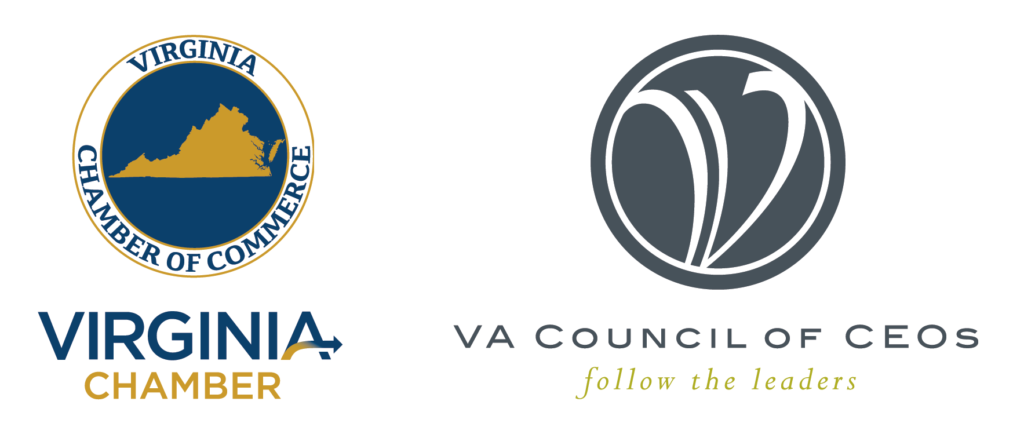
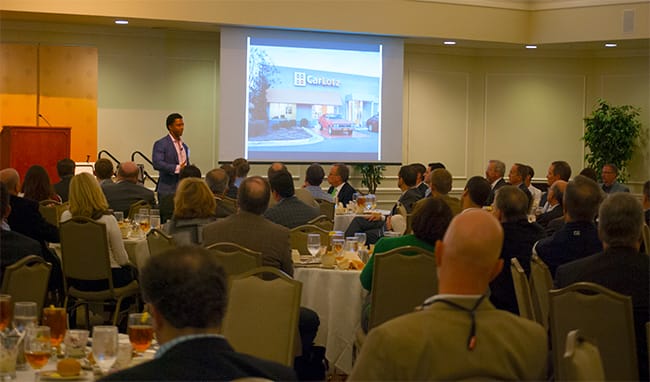
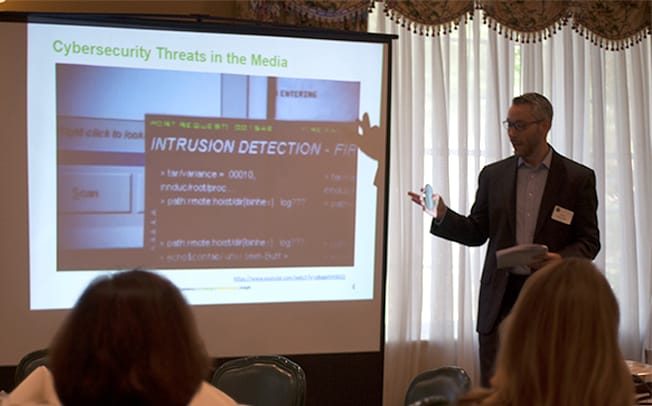
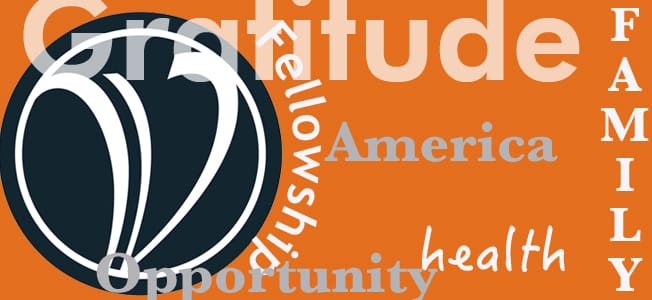
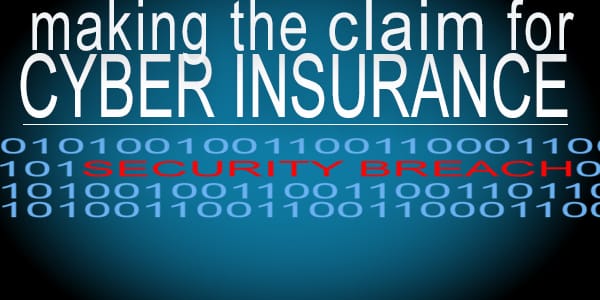


Recent Comments